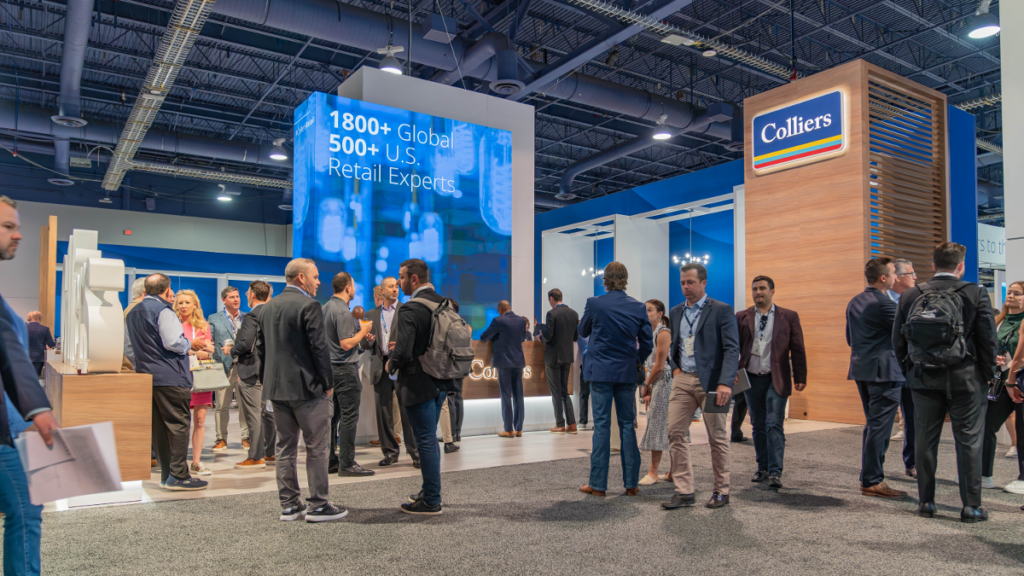The ICSC LAS VEGAS convention gathered approximately 25,000 industry professionals for deal-making, trend exploration, and networking. Legendary football coach Nick Saban delivered a motivational keynote, emphasizing the importance of continuous performance with his statement, “You are only as good as your last play.” Here is a summary of the three days of events, where retail experts and enthusiasts, the driving force behind innovation and evolution in the industry, shared their insights:
- Minimal space availability was top of mind, as professionals stated that retail’s main issue is not excess vacant space but a shortage of desirable space. Demand is outstripping supply due to much of the new construction already being pre-leased.
- The tight retail space conditions are expected to continue due to declining construction starts and tenants holding onto space at higher rates. This creates a favorable situation for landlords but a more competitive leasing environment for retail tenants.
- The lack of new supply is driving up the value of retail real estate.
- Higher wages will help buoy America’s consumer spending throughout 2024 and propel retail sales growth to slightly outpace last year.
- The U.S. retail sector has seen increased leasing demand in segments like food services, discount, fitness, grocery, and healthcare. These segments account for nearly 60% of new leasing activity, with food services leading at 19%. However, grocery stores, fitness centers, and furniture stores saw declines in leasing activity.
- Net lease retail is performing well despite interest rate pressures, with investors focusing on best-in-class credit tenants and well-located assets. Transactional activity will increase in 2024 as the market stabilizes on rates and valuations.
- The end of easy financing and a decline in venture funding have forced retail brands to abandon aggressive expansion strategies, focus on profitability, and close underperforming stores. Yet retail demand remains strong, with healthy competition for available spaces, leading brands to balance digital and physical growth more carefully.
- Credit spreads have narrowed, but the financing market remains volatile, mainly for malls. Interest rates significantly impact consumer behavior, with luxury retail thriving but middle to lower-income spending decreasing. Inflation has mixed effects, benefiting off-price retailers but straining tenants’ financial health.
- Despite ample investor demand and abundant capital, volatility in the capital markets and the cost of capital create a bid-ask spread impasse. High-performing assets and rent growth mean owners don’t need to sell unless they achieve the desired pricing, while demand for quality retail assets remains high.
- Successful financing deals today require best-in-class sponsorship, as lenders with limited capital prefer operators with solid tenant relationships and extensive experience. Deals must also be well thought out, underwritten, and leveraged.

 Nicole Larson
Nicole Larson

 Anjee Solanki
Anjee Solanki

 Aaron Jodka
Aaron Jodka